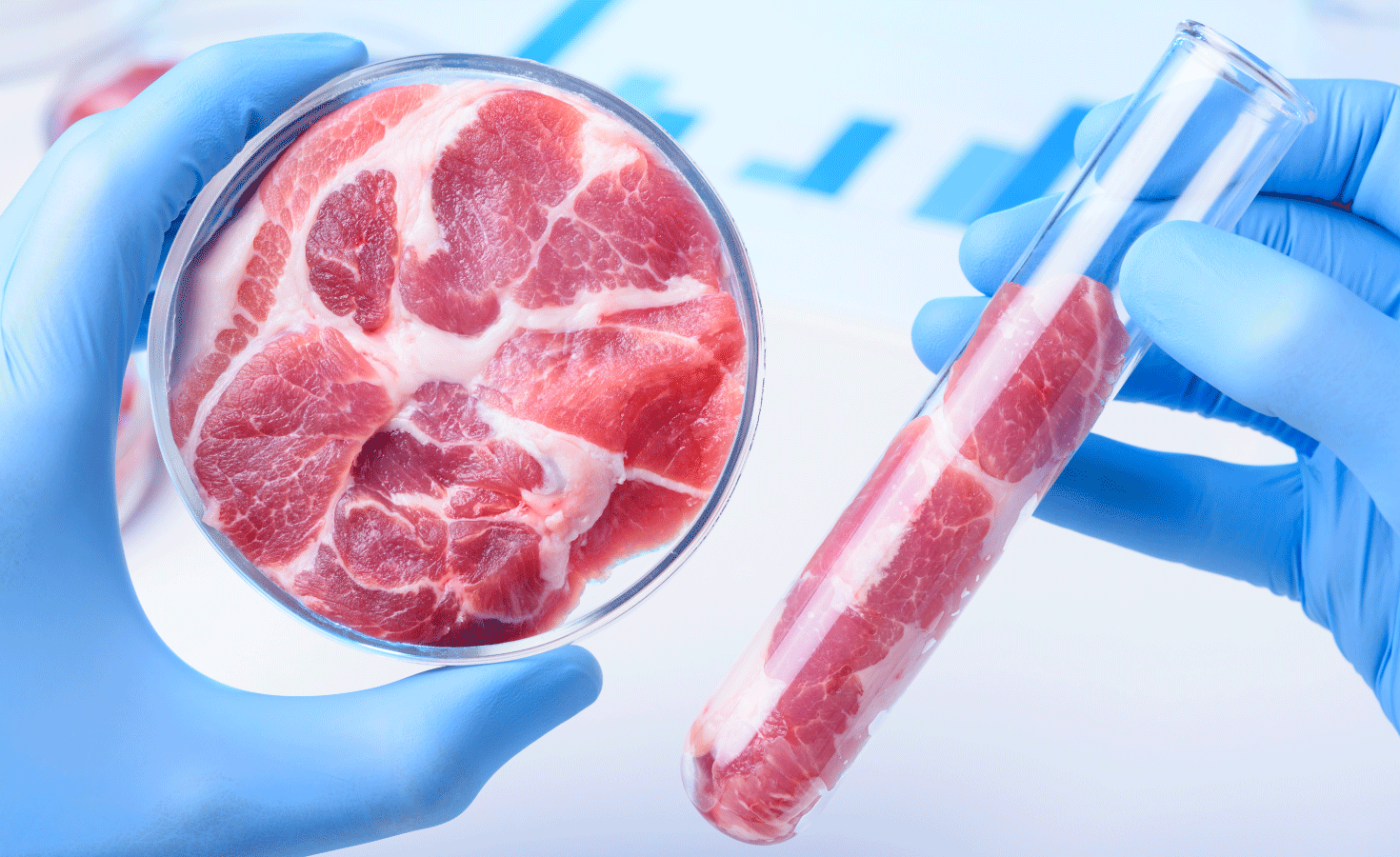Remember when we created a little petition back in 2018 in the hope to legalise the tasting of in vitro meat? About 4000 of you agreed with us and signed it. If you were one of them you must be very happy to hear that our prayers finally have been heard: the taste-testing of lab-grown meat and seafood is soon to be approved.
The Netherlands is one step closer to becoming a global hub for in vitro technology. The Dutch government has announced its decision to permit taste-testing of lab-grown meat and seafood. A collaboration between the Dutch government, Mosa Meat, Meatable, and HollandBIO has resulted in the development of a 'code of practice' to make tastings possible in controlled environments.
Following the lead of the United States and Singapore, the Netherlands has become the first European country to authorize tastings of lab-grown meat. It follows the Dutch government’s ‘National Growth Fund’ committing €60 million to build a competitive cellular agriculture ecosystem. The triumph of cultivated meat startups depend on various factors such as food safety, energy efficiency, and most importantly, the taste. In order to convince people to trade lab-grown meat for traditional animal products, it is very important to fulfil their expectations regarding flavour and texture. This means that the widespread testing of the taste of in vitro meat will be crucial to its success. However, this has not been evident up until this point. European scientists have encountered a significant hurdle so far, as they have been unable to provide people with the opportunity to sample their products. The decision of the Dutch government to finally permit tastings with specific conditions represents a significant stride forward in the advancement of this emerging industry.
But guess what, not everyone in Europe is as excited as the Dutch when it comes to the advancements made regarding the (regulatory) advancements of lab-grown meat. The newly formed Italian government has expressed concerns over the preservation of traditional cuisine and has proposed the world’s first ever national ban on the production and marketing of cultivated meat. The draft legislation seeks to hinder the presence of non-traditional food items on Italian dining tables and proposes penalties of up to €60,000 for violations committed by retailers or producers.
Cultivated meat is only one of a multitude of answers to the question of how we feed a growing population on a warming planet. In order to achieve sustainability, innovators must collaborate closely with those who adhere to traditional practices. It is through this partnership of science and culture that we can collectively find answers and devise strategies to ensure a sustainable future.

Danny Muis
Beste, Ik las het artikel over 'in vitro meat'. Ik ben docent biologie op het Eckartcollege in Eindhoven. Ik heb een aantal jaar geleden mijn bachelor docent biologie afgerond en ik ben nu gestart met de master. Voor mijn opleiding moet ik een 'duurzaam probleem' van een bedrijf oplossen waar ik ook mijn biologische diepgang in kwijt kan. Ik werk daarmee samen met andere studenten van andere vakken zoals scheikunde en natuurkunde. Voor hen geldt dezelfde opdracht. Kunnen jullie iets voor ons betekenen? Zo ja, dan zou ik graag spoedig in contact willen komen met jullie. Ik hoor het graag! Vriendelijke groeten, Danny Muis
Posted on